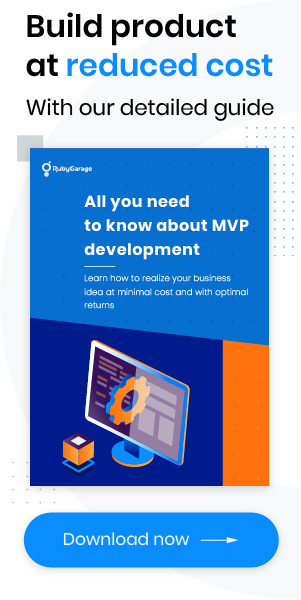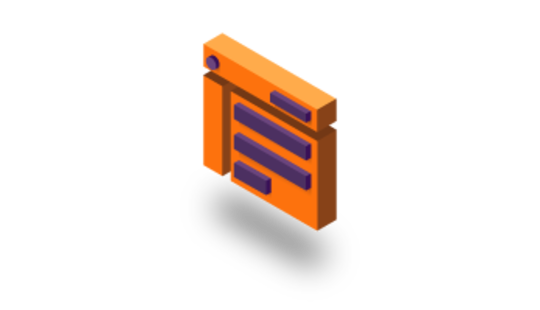-
Product Management
Software Testing
Technology Consulting
-
Multi-Vendor Marketplace
Online StoreCreate an online store with unique design and features at minimal cost using our MarketAge solutionCustom MarketplaceGet a unique, scalable, and cost-effective online marketplace with minimum time to marketTelemedicine SoftwareGet a cost-efficient, HIPAA-compliant telemedicine solution tailored to your facility's requirementsChat AppGet a customizable chat solution to connect users across multiple apps and platformsCustom Booking SystemImprove your business operations and expand to new markets with our appointment booking solutionVideo ConferencingAdjust our video conferencing solution for your business needsFor EnterpriseScale, automate, and improve business processes in your enterprise with our custom software solutionsFor StartupsTurn your startup ideas into viable, value-driven, and commercially successful software solutions -
-
- Case Studies
- Blog
Why to Hire a Full-Stack Web Developer for Building an MVP
You’ve got a brilliant idea for a startup and you’re looking forward to seeing a real-life product on the market.
However, even the best concept requires funding, which is a major challenge for most startups. Before investing money, you should validate your idea and find out whether it has any prospect of success. The best way to do so is to build a minimum viable product (MVP).
An MVP will help you find out the attitude of your potential customers to the product you intend to launch. If you receive positive feedback, then you can move on to developing a full-fledged web product.
Startup ideas are like iron: one should strike them while they’re hot. You should certainly build your MVP quickly and for a moderate price. That's exactly what you need a full-stack web developer for!
What Is Full-Stack Development?
Before you rush into funding your project, you should clearly realize what web development consists of. In fact, there are two sides of web development:
- Frontend development, which involves building everything a user can see on the screen; requires knowledge of HTML/CSS and JavaScript.
- Backend development, which involves programming languages, server-side architecture, and database management.

That’s quite a big skill set that one person can hardly wield.
Therefore, the development of large web projects usually requires a team of experienced single-discipline software engineers who are responsible for their domains only. But the question is whether a startup can afford hiring an entire team of web developers, and very often the answer is negative. As we've mentioned, startups should put their concepts to the test before starting the development of actual products.
Full-stack web developers don’t have in-depth expertise in all frontend and backend technologies, but their skills are sufficient to quickly build MVPs from scratch. In other words, they can do both frontend and backend coding for this specific task.
Needless to say, hiring a full-stack web developer is much cheaper than hiring a team of specialists, and this is a major advantage for startups. Moreover, having a single person responsible for your MVP means you can streamline communication, which speeds up the development process.
The latest trends in job postings on Indeed.com, one of the world’s largest job websites, show that demand for full-stack developers is on the rise.

What Should a Full-Stack Developer Know?
Now that you know what full-stack developers do, it’s time to take a closer look at their required skill set. There are lots of frontend and backend programming languages, databases, and types of server management software. Programming languages usually have a number of frameworks that facilitate software development and save time and effort.
It’s extremely difficult to embrace all of the existing technologies, so web developers usually pick a stack to focus on. Therefore, you should choose a full-stack software engineer according to your stack requirements.
We’ve decided to go over the most popular and in-demand skills for full-stack developers. This list can be used to prepare interview questions for a full-stack programmer.
#1: Frontend Skills
Frontend development involves client-side programming. A full-stack developer should be able to manage the data that a user sees, so the following technologies and frameworks (in parentheses) are necessary:
- HTML & CSS (Bootstrap)
HTML and CSS are the bricks that any website or application is built of. HTML stands for Hypertext Markup Language, and it’s a system of symbols and codes that tell a web browser how to display content, while CSS tells the browser how to style it. The majority of programmers start learning how to code by mastering these two scripting languages.
A full-stack programmer should also be familiar with Bootstrap, a helpful framework for content design and layouts.
- JavaScript (Angular, React)
According to the Developer Survey 2017 carried out by Stack Overflow, JavaScript is the most popular web development technology. It stands to reason that a full-stack software engineer needs to know JavaScript. Actually, JavaScript isn’t just for frontend; it can be used as a server-side programming language as well (we’ll talk about this further).
A full-stack software engineer should be able to use one of many JavaScript frameworks, such as Angular or ReactJS.
AngularJS is the most popular JavaScript framework in terms of number of contributors on GitHub, and is favored by startups for its high coding speed and two-way data binding. There's a newer version of the AngularJS framework that's simply called Angular.
Another popular JavaScript framework that many full-stack developers know is ReactJS. This is the second-most popular JavaScript framework, with over 1,000 contributors on GitHub. ReactJS is strikingly efficient for high-traffic services; this framework is used by Facebook and Instagram.

#2: Backend Skills
The frontend is powered by the backend. Developers use server-side programming languages to create the logic of a website or an application. A full-stack developer should have strong knowledge of one of the following pairs of backend languages and frameworks (frameworks in parentheses):
- Ruby (Ruby on Rails)
Ruby is a fantastic dynamic scripting language designed to be simple (in terms of syntax) and to help programmers be more productive. Ruby has become popular thanks to its well-known Ruby on Rails framework. Ruby on Rails has a lot of out-of-the-box tools (that speed up development); free libraries, or gems (that add extra functionality); and many other benefits that make this framework the best choice for startups. Such popular websites and platforms as Airbnb, Shopify, Hulu, and Bloomberg have been built with Rails.
- Node.js (ExpressJS)
The Node.js platform allows developers to use JavaScript for server-side programming. This is very convenient, as the same language can be used for both frontend and backend scripting. ExpressJS is the most popular framework for Node.js.
- Python (Django)
Python is one of the most popular dynamic programming languages for developing web and desktop programs. This language is particularly useful for data mining and scientific research. Pinterest, Dropbox, Reddit, and other well-known websites have been created with Python. There are several Python frameworks (e.g. Django).
- PHP (Laravel, Symfony)
Though today PHP is less popular than it was in the past, it’s still in demand. Many websites, such as Wikipedia and WordPress, have been built with this scripting language. Laravel and Symfony are the most common PHP frameworks.
- Java (Spring MVC, JSF)
The programming languages we’ve mentioned so far are all dynamic, but Java is static. Static languages require more code but, at the same time, are easy to scale and maintain. Many enterprises stick with Java as a programming language for backend development. A variety of Java-based frameworks are available: for example, Spring MVC and JSF.
#3: Databases
Database management is a part of server-side programming. There are two major types of databases: relational (which store data in tables and rows) and non-relational (which store data in JSON documents). Full-stack developers should be able to work with the most popular databases:
- MySQL
According to the Developer Survey 2017 carried out by Stack Overflow, MySQL is the most common database technology (55.6% of respondents use it). This relational database is used by high-traffic websites, such as Google, Facebook, and Twitter.
- PostgreSQL
PostgreSQL is a relational database with optional object features. It’s used by large companies such as Instagram, Yahoo, and Skype.
- MongoDB
MongoDB is the most popular non-relational database. It’s used by many online retailers (eBay), financial companies (MetLife), and companies in other industries.

#4: Web Servers
Full-stack developers should have strong server management skills. There are two major players in this sphere:
- Apache
Apache HTTP Server is open-source server software that’s used by the majority of the websites in the world. According to a diagram composed by W3Techs, 49.5% of websites use Apache.
- Nginx
Nginx is an asynchronous web server created to counter the problem of handling multiple concurrent sessions (Apache struggles to handle this task effectively). It’s far more high-performing than Apache, so it’s used by many high-traffic websites. According to the same W3Techs diagram, Nginx is used by 34% of all website.

Full-Stack Developers: T-Shaped Professionals
We’ve mentioned only some full-stack web development technologies, without going too deep into details. Even so, you’re likely to say, “Wow! Only a genius could master all of these languages and frameworks!” Well, that’s right: very few people can master so many technologies.
Full-stack programmers are usually experts in one (or a few) programming languages, but have general knowledge of other languages and platforms. This kind of skill set is usually called a T-shaped model. A T-shaped model is opposed to an I-shaped model, which refers to people who are proficient in a particular field only.

T-shaped specialists are extremely useful when it comes to the development of modern web projects, since this task requires knowledge of multiple platforms and tools.
Get Your Startup Idea Off the Ground by Hiring a Remote Full-Stack Developer
If you’re intent on giving your brilliant startup idea a go, you can either hire an in-house full-stack developer or opt for a remote professional to build your MVP. Though the first option sounds great, it isn’t cheap: according to an estimate by Indeed.com, the average salary of a full-stack developer in the US is nearly $56/hour, which roughly translates to over $111,000/year. Needless to say, California-based full-stack developers charge even more for their services. Quite a challenge for a startup, isn’t it?
Therefore, it may be more reasonable in terms of cost to hire a remote full-stack developer. Keep in mind that if your minimum viable product receives positive feedback from potential customers and you decide to launch a real product, you can continue working with the same full-stack developer and hire more programmers who’ll do their best to deliver a full-fledged product in the shortest time possible.
If you need help with the development of an MVP or a product for release, our team is always at your service.










